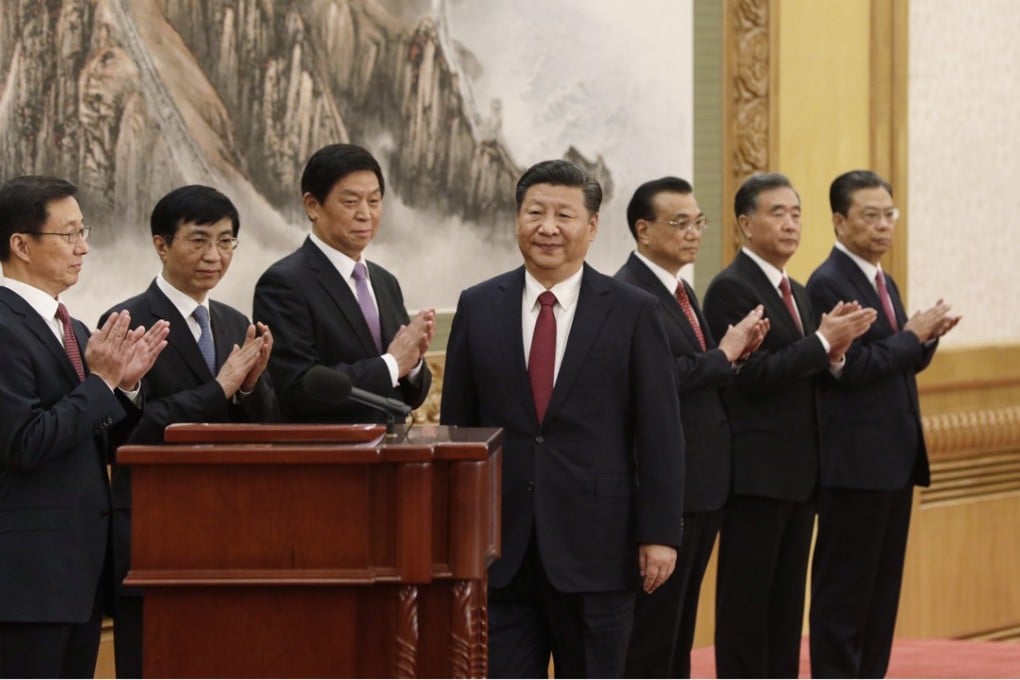Advertisement
Where are the women? China’s new leadership reveals equality is a low priority
Alice Wu says the lack of women in the Politburo Standing Committee – and the Politburo in general – shows that President Xi Jinping’s plan for Chinese greatness doesn’t include prioritising gender equality
Reading Time:3 minutes
Why you can trust SCMP

The Education Bureau seems to have invited controversy by inviting Hong Kong secondary schools to stream a Basic Law seminar featuring a Beijing official next month.
But we should be tuning in more, and not only to things pertaining to Hong Kong. If we tuned in to the 19th party congress, we would notice that once again no women can be found in the new Politburo Standing Committee.
And regardless how “big” the story of President Xi Jinping’s political stature, elevated to the heights of Deng Xiaoping and Mao Zedong, is or how “glorious” the Chinese dream will be, the fact remains: men, not women, will usher China into this new era. If Mao’s proclamation that “women hold up half the sky” means anything at all, this Chinese dream is only half a dream.
A record number of women … but it’s still a man’s world at the top of the Chinese government

Advertisement
Article 48 of the People’s Republic of China’s constitution states: “Women in the People’s Republic of China enjoy equal rights with men in all spheres of life, political, economic, cultural and social, and family life. The state protects the rights and interests of women, applies the principle of equal pay for equal work for men and women alike and trains and selects cadres from among women.”
They hold up half the sky: six of every 10 of the world’s self-made, women billionaires are in China
But women aren’t equal with men in all spheres of life, especially the political sphere. The nation’s most powerful may congratulate themselves for having a 24.1 per cent women membership in its delegates, an increase from 23 per cent at the 18th congress. But does it reflect, as state-run media claimed, “the great efforts made by the party to give women members a bigger say”?
Advertisement
Those great efforts can be greater, especially since the wider 25-member Politburo has shrunk its room for women from two to one token female – Sun Chunlan, head of the party’s United Front Work Department, who, at 67, is close to retirement age.
Advertisement
Select Voice
Choose your listening speed
Get through articles 2x faster
1.25x
250 WPM
Slow
Average
Fast
1.25x